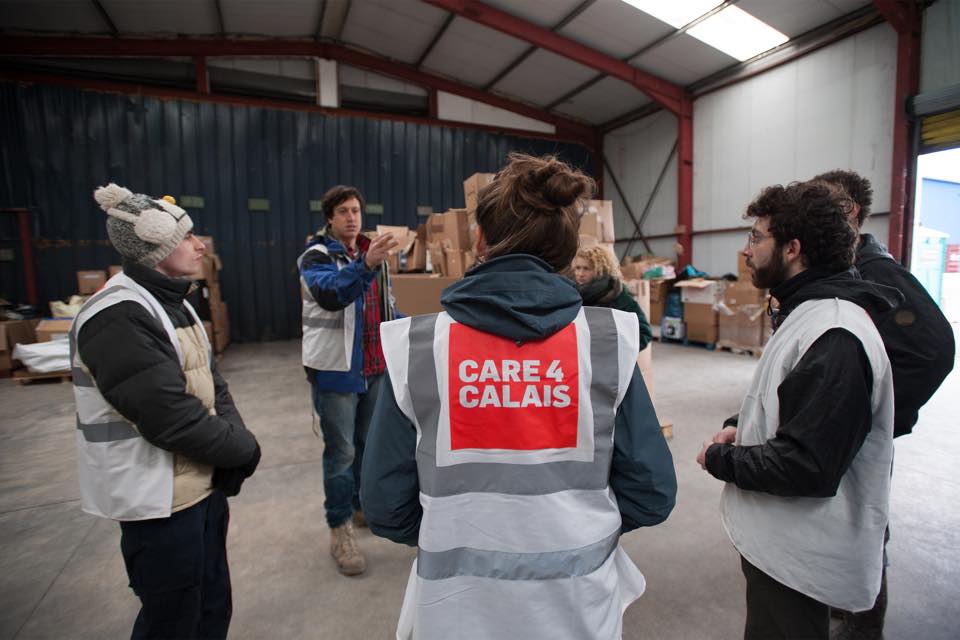In a time of multiple crises, it is easy to forget that some people have been struggling, and will continue to struggle, for years. The refugee crisis continues, with hundreds of people living in appalling conditions in the north of France.
Care4Calais is a charity solely run by volunteers, working to spread awareness about what is happening and to help closely at the settlements in Calais. The charity estimates that there are around 700 refugees rough sleeping in and around Calais. After the ‘Jungle’ Camp was closed in October 2016, the refugees have had to fend for themselves even more, working to survive but also defending themselves against the authorities who are adamant not to allow another permanent camp from forming.
News stories of refugees coming to the UK by dingey, ships and lorries are frequent, and no longer create the same horrified reaction they once did. On 21 April, BBC news reported that there had already been more than 1,732 people crossing the Channel up until then this year.
Hannah Mollet, a second-year Sociology student at the University of Leeds, witnessed the refugee crisis first-hand while volunteering in Calais over Christmas.
For Hannah, her experience through Care4Calais was particularly important to “learn about refugees as well as giving to them because they’re more than just people to give to,” she told me when we spoke on the phone. It is also particularly important to acknowledge that simply being able to travel to and from Calais underlines the gap between our privilege and the refugees’ struggle.
The reaction towards the refugees from the governments in France and the UK, as well as the presence of police at the camps, shocked the volunteers but is unfortunately not surprising when looking at the wider pattern of ‘law enforcement.’ Hannah described the police evacuating sites of refugees, cutting down their tents and stealing possessions from them – tactics which she felt were attempts at “scaremongering.” One man she had met had had his shoes taken from him by the police.
The UK Government’s action against refugees has been equally controversial. Most recently, in November of last year, Priti Patel announced further “tactical intervention” after signing a £28 million deal between the UK and France in order to double the police patrols on French beaches. Critics have commented on this decision as inhumane – Amnesty International UK said the deal was “profoundly disappointing.” At the end of March, Patel announced that those who claim asylum in the UK will depend on the method used to arrive here. These adjustments mean that the refugees in Calais have even fewer options than before.
The Care4Calais volunteering unit Hannah was part of distributed sleeping bags, tentstents, and clothing, as well as offering the refugees food and drink. The group of volunteers would go to the various settlements and distribute their resources. A lot of the refugees Hannah saw would sleep by the river; “probably the most shocking thing [Hannah] saw” because of the terrible conditions which they had to survive under and live in, even after having escaped from war-torn countries in fear for their lives. The refugees come from many different countries and have different reasons for why they have made the perilous journey, countries included Afghanistan, Sudan, Eritrean, Iraq, Iran, and Syria. These countries are among the 28 most restless countries in the world listed by the Global Peace Index.
Hannah described the story of an Iranian family she stayed with whilst in Calais. The familyy had had to flee Iran because the woman was bisexual, and her husband was Christian. This woman’s story emphasised for Hannah her own privilege: “she had to flee her country for something that people in the UK can express freely.”
Hannah’s dad went with her to Calais and they both agreed upon the kindness of the refugees, emphasising that background is irrelevant when connecting with someone on a human level.
Another volunteer, Kirstin Doran, said the same: “Despite being from such different backgrounds, there was always a way to find shared experiences, interests, and aspirations.” This was epitomised by some of the relationships Hannah was able to develop, learning Arabic from one refugee and being taught by his best friend how to make Sudanese coffee.
The Leeds-based refugee charity Leeds Asylum Seekers Support Network (LASSN) has various opportunities for students to get involved with as well. Their vision “for all asylum seekers and refugees to be safe, respected, supported and empowered to rebuild their lives free of persecution” emphasises how privileged we are to be in a position to help refugees find safety.
The crisis hasn’t simply gone away because it’s not on the front page of newspapers anymore, and there is plenty more that could be done, even after the refugees arrive in the UK.
If you’re interested in getting involved here are some charities and opportunities around Leeds to volunteer with:
Care4Calais –
Student Action for Refugees (Leeds University Union Society) –
https://www.facebook.com/StarAtLeeds
https://www.luu.org.uk/clubs-and-societies/browse-clubs-and-societies/student-action-for-refugees/
Leeds based refugee charities –
Featured image via Care4Calais.

